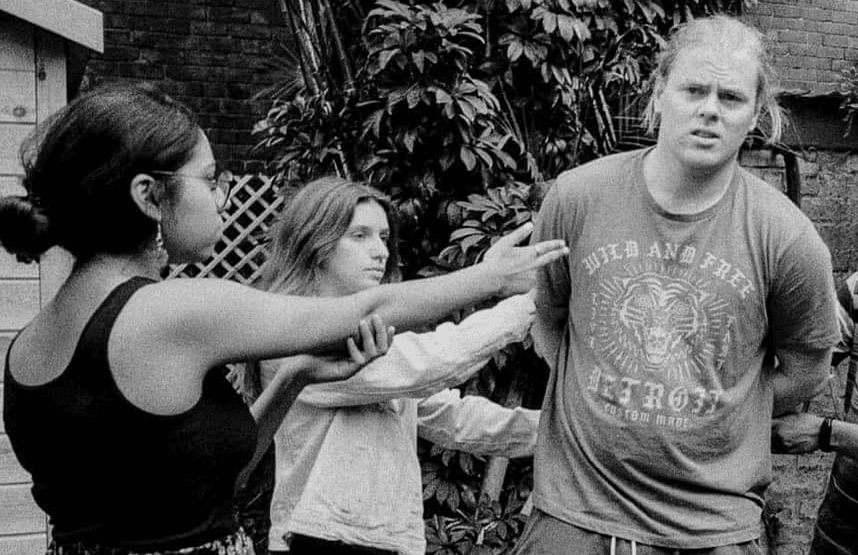Outside of the Cellar Theatre, I make idle talk with a thickly mustachioed man who holds a book on game theory. He tells me that he saw the show a few nights before. I ask him how it was. For a few seconds, he thinks. Even his eyes seem to be searching for the right combination of words to describe his experience.
He eventually settles on a single word: “Weird.”
Indeed, there are few words that can be used to really summarise SUDS’ outstanding theatrical adaptation of Franz Kafka’s The Trial. So maybe I can satisfy you, for now, by saying that it was very good, very… Kafkaesque.
Here’s the plot: bank manager Josef K (or K, for short) is accused of having committed one or many crimes. But what crimes has he committed? What gruesome punishment does the Law have in store for K? We follow K’s journey through the bowels of bureaucracy in search of an acquittal – or at least an explanation.
Although we are not yet aware of this fact, the show begins with us, the audience, gathered in the lobby in front of the door which I had believed led to the main stage. Au contraire: I am told by a man and a woman in black that this is the door leading to the Law. It is opened, and I am beckoned by a tall blonde man — our protagonist, K (Max Seppelt) — to follow him inside.
In an unsettling display of what is sure to come, there are precisely enough chairs in the front of the Theatre for each member of the audience. But we never really sit in them: we are led around the Theatre’s space, its small size cleverly used by set designer Sarah Amin to render K’s world in claustrophobic detail. At the front of the stage is a bed and bookshelves: at one point they serve to depict K’s apartment, but at another this space is the home of some lodgers (Kiara Butera and Puranjay Kumar). Five steps commute from K’s room is his bank office – here, there are only desks, cluttered with paper and disconnected phones. A stride away are five yellow chairs, which work as both bus seats and the court’s waiting room. This world is a beautifully dreadful, dreadfully anonymous skeleton.
There are only six people in this world, including K. Members of the small supporting cast alternate between roles that all seem to bleed into a single faceless whole: adulterers and cuckolds, people vain and temperamental, impersonal and Machiavellian. A man confesses in heart-wrenching screams that his lover has been sleeping with other men, only for K to suggest that maybe it is better this way. K, possibly staring down a death sentence, seduces and is seduced by his lawyer’s nurse (Annaliyah Noël). Fräulein Montag (Kiara Butera) comes onto K, but only so that she may fasten a prisoner number to his shirt, and all the while slandering another tenant for being promiscuous.
In one of the production’s many ‘notable quotables’, K, at the end of his rope, consults court painter Titorelli (Sajid Anower) to find out whether he can get an acquittal. K is made by Titorelli to push his head through an easel. Titorelli beholds K’s stunned cluelessness. “Josef K”, Titorelli says to his living portrait. “You have been framed.”
Even the audience becomes marvellously entangled in K’s world. What are we waiting for, a disheveled K asks us as we stand in the lobby of a court. The hearing, one of my compadres in the audience says. Is this the password that resumes the play? This answer slips into a void; we have only pushed K further into madness. We sit or stand in his way, so that he almost trips as he walks past us to his house. All we ever do is watch the world, obstructing its course, like a sadistic, voyeuristic horde.
The entire show was like the best type of fever dream – a flowing vision with an internal logic so mythically tangled that its strangeness rubs off on normal mundane reality. This was not a mere repurposing of a familiar narrative. It was a creative re-envisioning of Kafka’s story for the theatre. And so perhaps “weird” does not quite do the show justice – it was Kafkaesque.
My applause goes out to the show’s humble cast, with special mentions going to Max Seppelt for his evocative performance as K, to Jenny Gaschler’s clever direction, and to Julie Hoang for producing this show.





